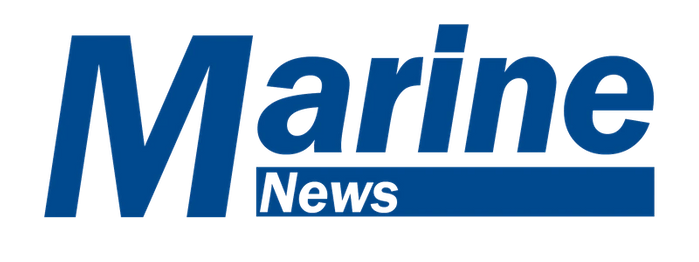Technology Jobs
Massa Products Corporation
Massa Products Corporation:
Innovating Sonar Technology & Securing the Future of the Maritime Workforce
Dawn Massa Stancavish, President, CEO, and Chief Innovation Officer, Massa Products Corporation, recently joined Rhonda Moniz on the DEEP DIVE podcast to discuss this innovative company’s rich history and its role in helping to inspire a new generation of technology workers.
Massa Products Corporation has been a cornerstone of sonar technology for nearly eight decades, shaping advancements in U.S. naval defense and maritime innovation. Massa's impact on national security is undeniable as a premier supplier of sonar transducers and arrays for U.S. Navy submarines. However, beyond its technological prowess, Massa is also tackling one of the industry’s most pressing concerns: the future of the maritime workforce.
Under the leadership of Dawn Massa Stancavish, President, CEO, and Chief Innovation Officer, Massa continues to drive advancements in sonar technology while investing in workforce development to ensure a sustainable pipeline of skilled professionals. As the maritime defense sector faces growing workforce shortages and global defense collaborations like AUKUS reshape industry dynamics, Massa is poised to play a pivotal role in innovation and workforce training.
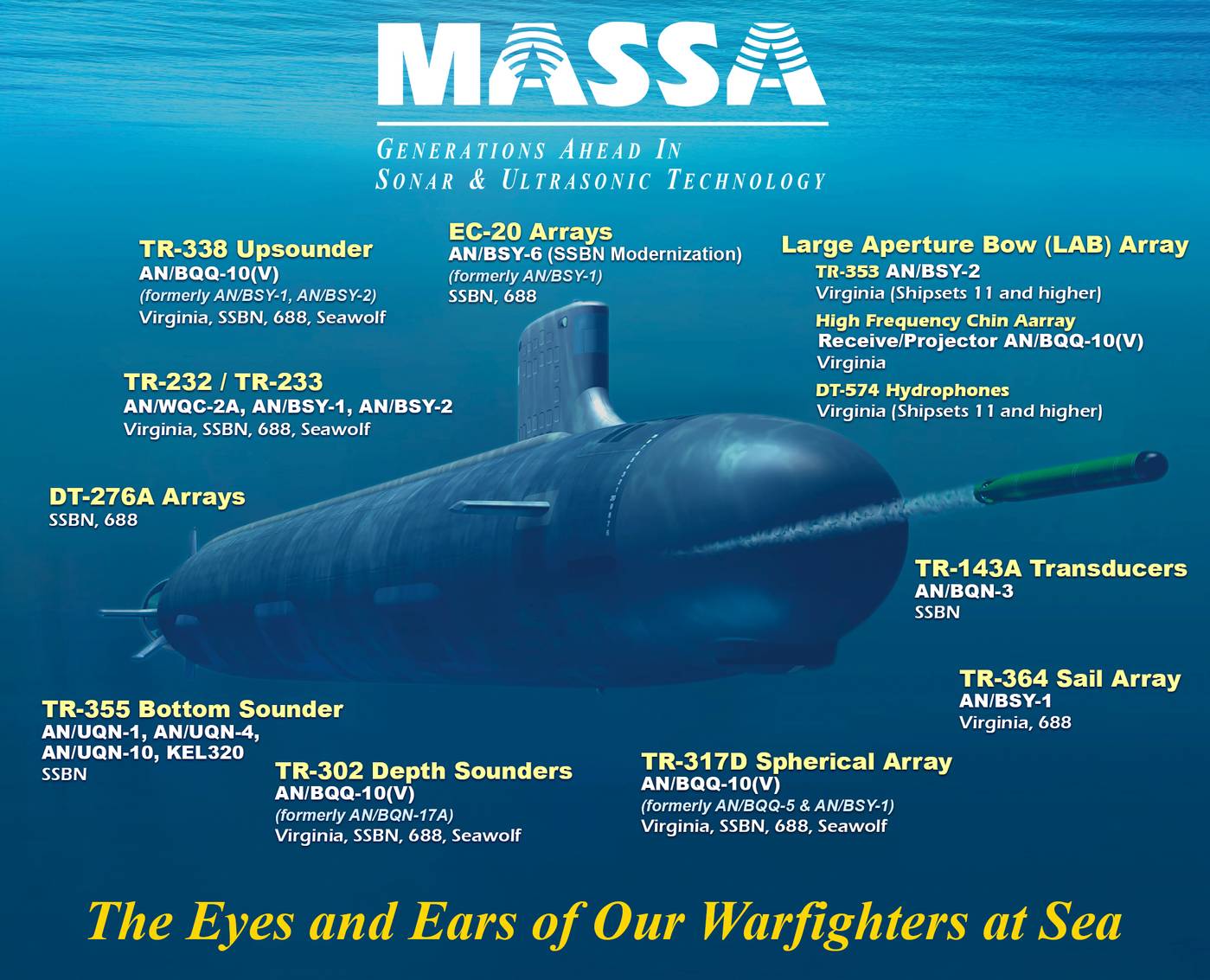
A Legacy of Sonar Innovation
Founded in 1945 by Frank Massa, a pioneer in sonar technology, Massa Products Corporation has long been at the forefront of U.S. naval defense initiatives. During World War II, Frank Massa’s contributions were instrumental in developing sonar transducers, producing over 200 unique designs that significantly expanded the Navy’s sonar capabilities.
Today, Massa remains a critical supplier for the U.S. Navy’s Virginia-class attack submarines (SSNs), Columbia-class and Ohio-class ballistic missile submarines (SSBNs), and guided missile submarines (SSGNs). The company supplies over 60% of the sonar transducers and arrays used in these advanced platforms, ensuring superior underwater situational awareness.
Unlike many firms specializing in either R&D or production, Massa has maintained a fully integrated approach—designing, engineering, and manufacturing all in-house. This streamlined process allows for:
-
Rapid prototyping and problem-solving in response to evolving naval requirements.
-
Strict quality control across all phases of production.
-
Innovative applications of sound technology across both defense and commercial sectors.
With 170 patents and counting, Massa’s commitment to sonar and acoustic innovation remains as strong as ever.
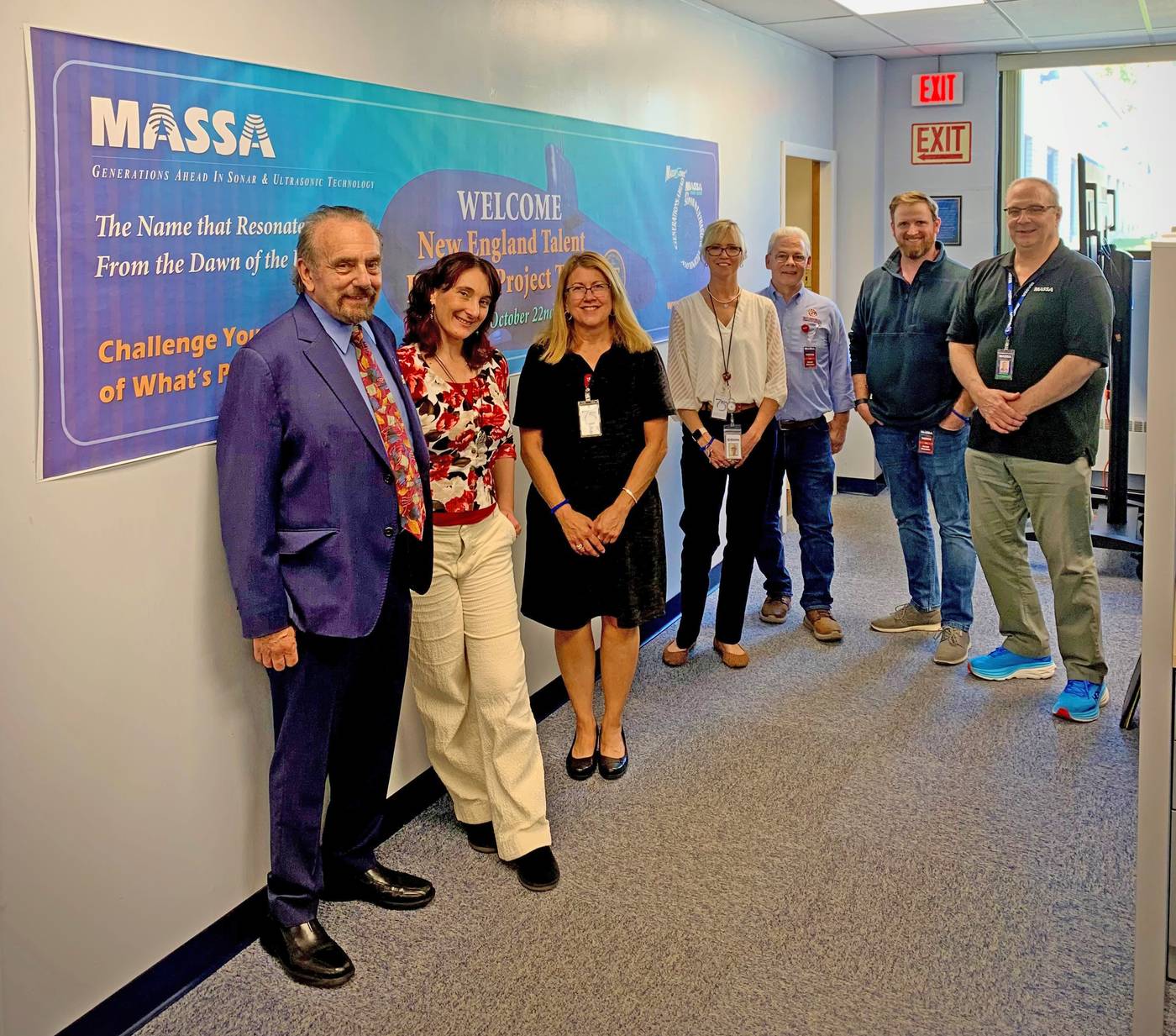
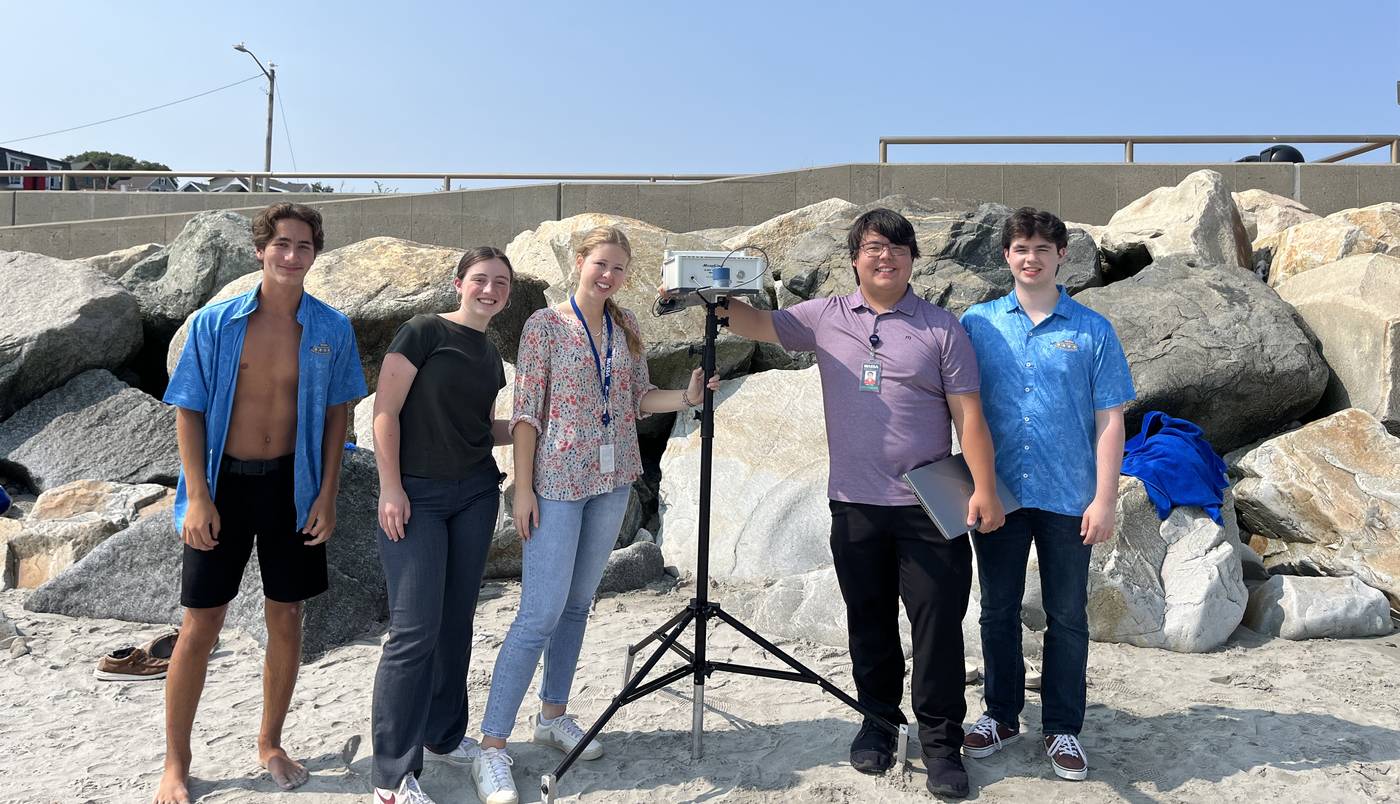
Bridging the Workforce Gap: Training the Next Generation
While Massa’s technological expertise keeps it at the cutting edge, the company is equally committed to tackling one of the biggest challenges in the maritime industry: the shortage of skilled technical workers.
Across the submarine industrial base, companies struggle to fill roles in manufacturing, precision machining, electrical work, and other skilled trades—positions critical to national security. This workforce shortage was exacerbated by COVID-19, which accelerated retirements and disrupted technical training pipelines.
“For years, the message has been ‘go to college, go to college,’” explains Dawn Massa Stancavish. “That created a shortage of skilled tradespeople in fields like welding, cable manufacturing, and precision machining—jobs essential to building submarines and supporting national defense.”
To address this, the U.S. Navy launched the Submarine Industrial Base (SIB) initiative, now expanded into the Maritime Industrial Base (MIB), to build a stronger workforce pipeline. Programs like BuildSubmarines.com are also raising awareness of career opportunities in submarine manufacturing, connecting job seekers with companies like Massa.
Massa has fully embraced these efforts, achieving 50% workforce growth during COVID-19 by investing in training, retention, and apprenticeship programs. The company collaborates with local high schools, vocational programs, and industry partners to provide hands-on training, reinforcing that a college degree is not the only path to success in the defense industry.
“There’s a misconception that your career options are limited if you don’t go to college. That’s just not true,” says Stancavish. “Defense manufacturing offers stable, well-paying, and meaningful careers in CNC machining, assembly, and quality control.”
For those interested in engineering degrees, many defense firms, including Massa, support employees in pursuing higher education while working, creating upward mobility within the industry.
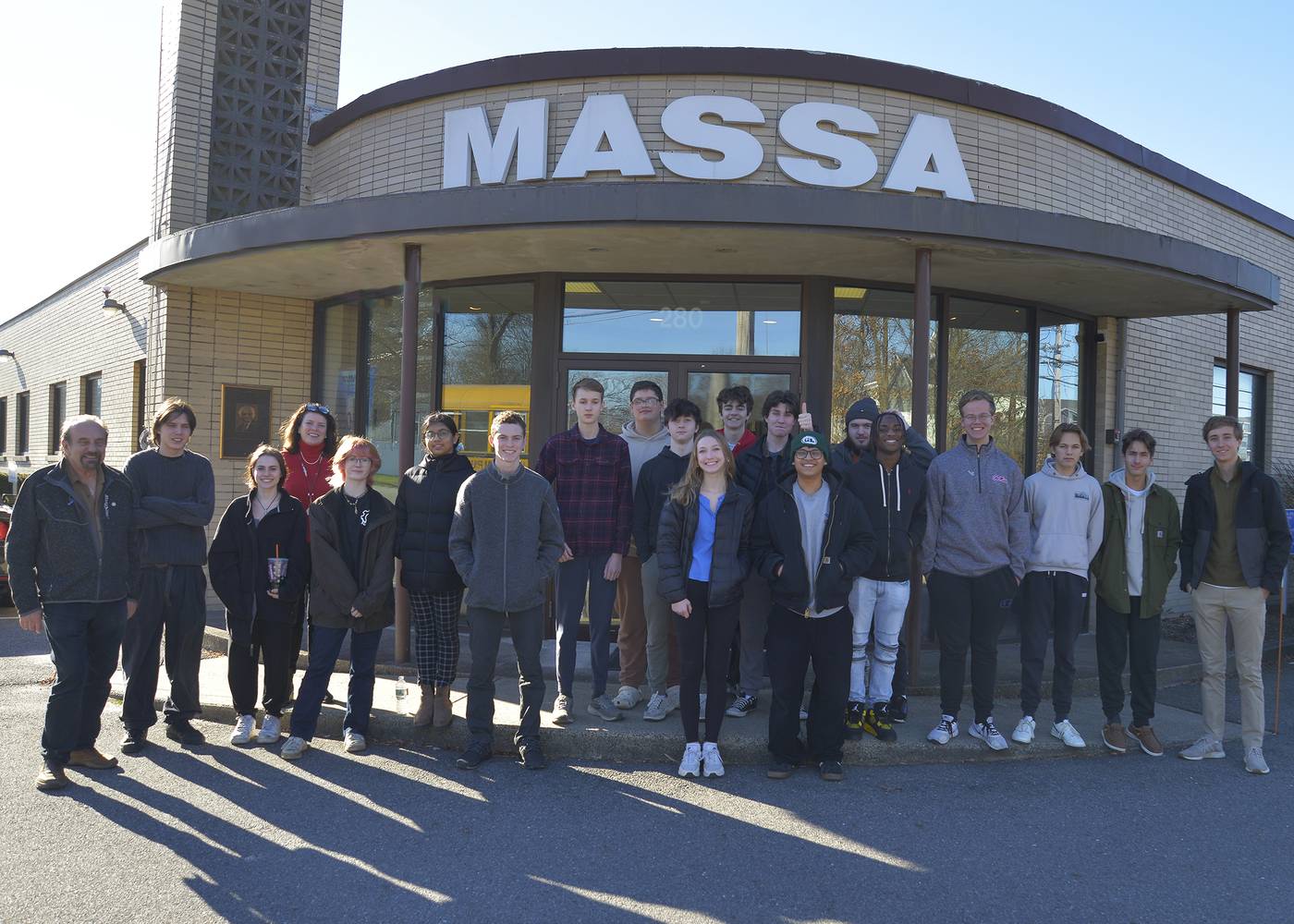
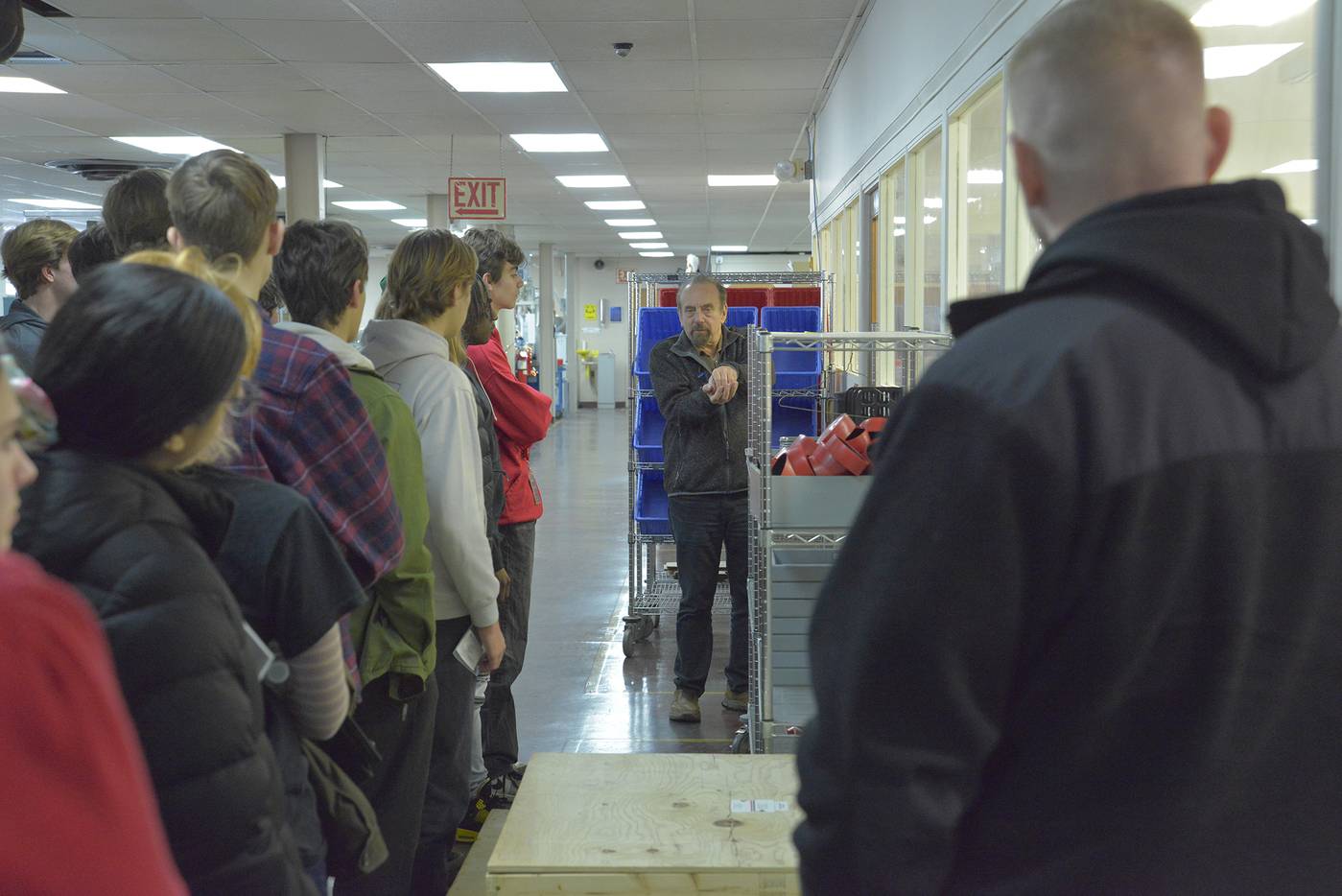
AUKUS and the Future of Global Defense Collaboration
Massa’s influence isn’t confined to the U.S. domestic market. The AUKUS agreement, a strategic defense partnership between Australia, the United Kingdom, and the United States, transforms global naval operations by bolstering submarine capabilities among allied nations.
As part of the AUKUS initiative, the U.S. defense industry is set to receive $3 billion in Australian investment, with $500 million already allocated to strengthen the American submarine supply chain. This investment will strengthen supply chains, expand production, create new jobs, and require a larger skilled workforce.
“There could be opportunities for skilled tradespeople to work internationally, whether in the U.S., Australia, or the U.K.,” notes Stancavish. “The defense sector isn’t just about technology—it’s about strengthening global relationships and security.”
For maritime industry workers, this means more career opportunities, expanded training programs, and increased demand for skilled labor in the submarine and defense sectors.
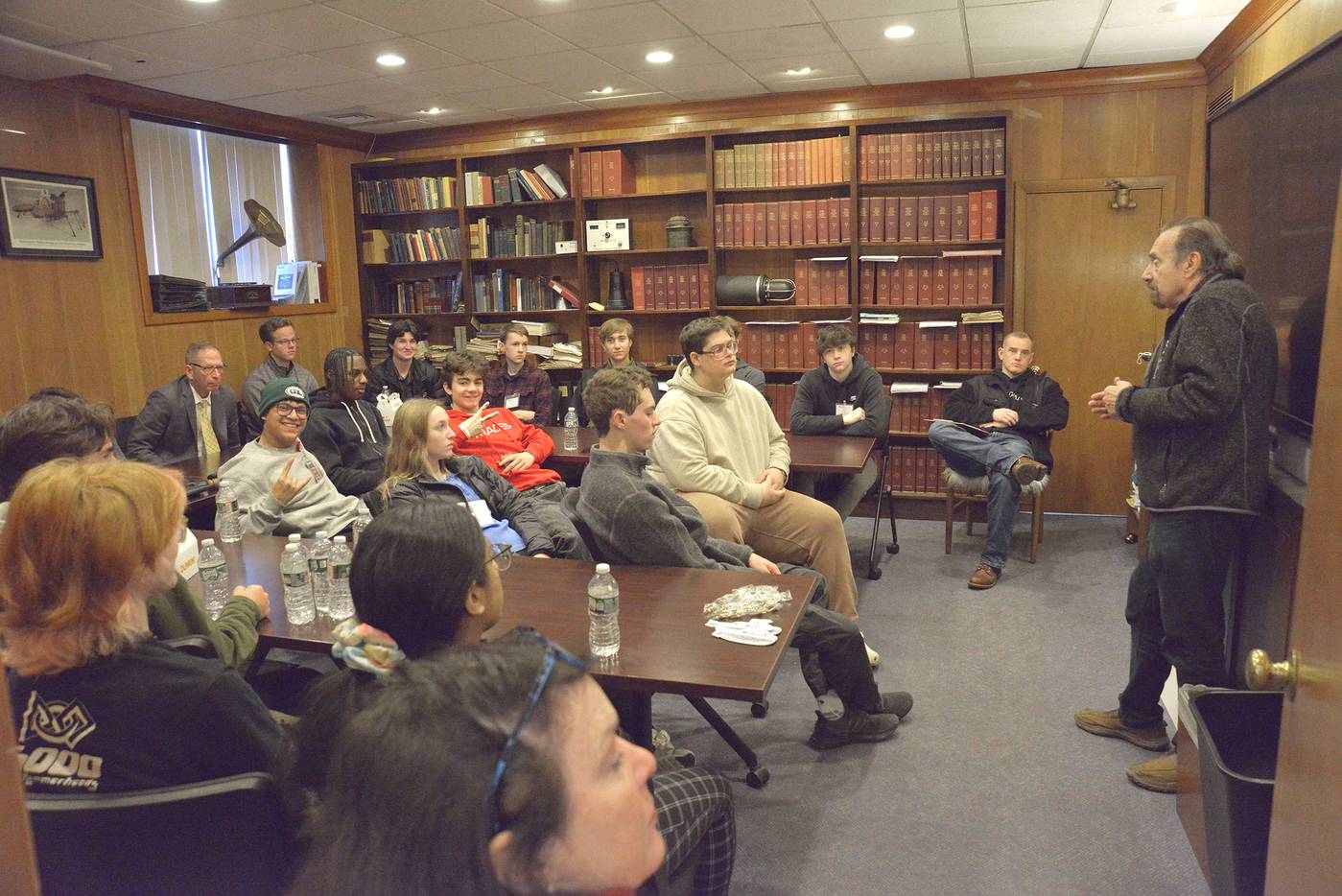
Massa’s Vision: Innovation, Training, and Collaboration
The maritime defense sector stands at a crossroads, balancing the integration of emerging technologies like AI, additive manufacturing, and robotics with the need for human expertise in precision manufacturing and assembly. Massa’s strategy addresses both challenges:
-
Investing in Workforce Development
-
Expanding apprenticeship programs to train the next generation of skilled technicians.
-
Partnering with industry organizations to raise awareness about maritime careers.
-
Supporting employees in continuing education and career advancement.
-
-
Advancing Sonar Technology
-
Driving new research and development in underwater acoustics.
-
Expanding patent portfolio to enhance naval and commercial applications.
-
Maintaining a fully integrated engineering and manufacturing process for quality control and rapid innovation.
-
-
Strengthening Industry Collaborations
-
Engaging in AUKUS and Maritime Industrial Base workforce initiatives.
-
Partnering with defense and commercial firms to expand sonar applications.
-
Supporting U.S. Navy and allied forces through continued innovation and production.
-
“Adaptability is key for companies and workers alike,” says Stancavish. “Companies need to invest in skill-building, and workers need to be willing to learn new trades and take on new challenges. The defense industry offers career paths in machining, assembly, quality control, engineering, and beyond.”
Her final advice for those considering careers in maritime defense manufacturing:
“Find a company where you feel a connection. The right culture matters as much as the right job.”
Massa Products Corporation continues to prove that the future of defense is not just about technology—it’s about the people who build it. Through innovation in sonar technology, commitment to workforce development, and active participation in global defense collaborations, Massa is securing not just the future of U.S. naval operations, but the careers of those who power them.
As the maritime industry navigates workforce shortages, international partnerships, and technological shifts, Massa’s dual focus on innovation and training ensures it remains a leader in the evolving landscape of maritime defense.
For those seeking careers in sonar technology, precision manufacturing, or naval defense, Massa offers more than just a job—it offers a mission, a legacy, and a future.
